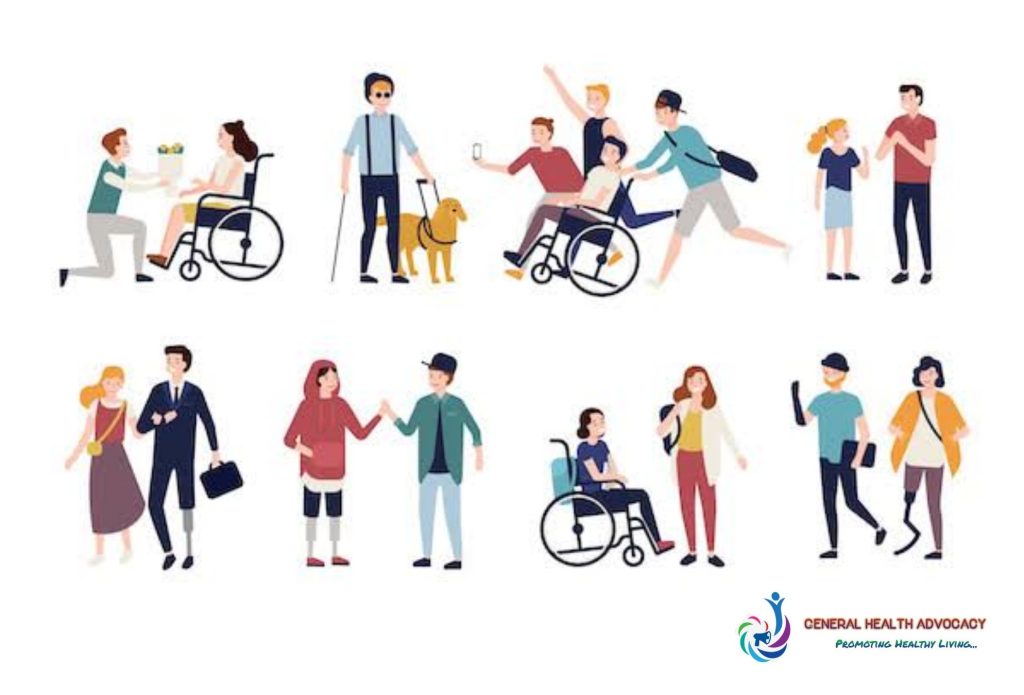Special Care for People with Disabilities: An Inclusive Approach to Health

Disability is a broad term that encompasses impairments, limitations, and restrictions which hinder an individual’s ability to participate fully in society. It is important to recognize that people with disabilities have diverse needs and capabilities.
Special care strategies are necessary to ensure their health and quality of life. We will define disability, explore the importance of specialized care, and discuss various strategies that can be implemented to provide the best possible support for individuals with disabilities.
Defining Disability
Disability can be categorized into different types, including physical, sensory, intellectual, and developmental disabilities.
- Physical disabilities refer to conditions such as spinal cord injuries, mobility impairments, or conditions affecting muscular strength.
- Sensory disabilities relate to impairments of vision or hearing.
- Intellectual disabilities involve limitations in intellectual functioning and adaptive behavior.
- Developmental disabilities refer to conditions that occur during the developmental period, such as autism spectrum disorder.
The Importance of Specialized Care
Individuals with disabilities may face unique challenges in terms of their overall health and well-being. Therefore, it is crucial to provide them with specialized care to address these specific needs. Specialized care is person-centered, focusing on an individual’s strengths and empowering them to live a fulfilling and independent life. Specialized care aims to optimize physical, emotional, and mental health, as well as promote social integration and overall well-being.
Read Also
Care Strategies for People with Disabilities
- Accessibility: Ensuring physical accessibility is essential, allowing individuals with disabilities to navigate their environment comfortably. This includes ramps, wide doorways, accessible toilets, and appropriately designed spaces. Additionally, making sure information is available in alternative formats, such as braille or audio, promotes inclusivity.
- Assistive Devices and Technology: Assistive devices and technology play a vital role in improving the quality of life for people with disabilities. These can include mobility aids (wheelchairs, crutches), hearing aids, communication devices, and sensory aids. By providing access to these tools, individuals can perform daily activities and engage in various tasks effectively.
- Holistic Healthcare: Individuals with disabilities often require comprehensive healthcare that addresses both their specific condition and their general health needs. This means integrating primary care, specialized therapies, and mental health support. Collaborative care teams, consisting of doctors, therapists, nurses, and social workers, can work together to provide holistic and personalized care.
- Mental Health Support: Mental health is an often overlooked aspect of care for people with disabilities.

In conclusion, providing special care for people with disabilities is crucial to ensure their health, well-being, and overall quality of life. Disability is a broad term that encompasses various impairments, limitations, and restrictions. Understanding the specific needs of individuals with disabilities is essential to develop effective care strategies.
Specialized care strategies include ensuring accessibility, providing assistive devices and technology, offering holistic healthcare, and addressing mental health needs.
By implementing these strategies, individuals with disabilities can have increased independence, improved health outcomes, and enhanced overall well-being.
It is important to approach special care for people with disabilities in an inclusive and person-centered manner. Recognizing and respecting their strengths, abilities, and challenges is crucial for providing the highest quality care.
By adopting an inclusive approach, we can promote a society that values diversity and supports the well-being of all its members. Let us strive to create a world where individuals with disabilities can thrive and achieve their full potential.